To view the accompanying maps and graphics, click here.
Emriye Uysal, better known as Sugar Auntie, had never expected her café to end this way. Laterna Cafe had for ten years been a hive of cigarette smoke, tea and backgammon — a hideout for students on a budget who, if the timing was right, could ask Uysal for a job or a scholarship. It was tucked away on the fringes of Taksim Square, a short sprint from Gezi Park where, in 2013, the same students choked on tear gas during mass anti-gentrification protests and hustled back to the café for fresh air and first aid.
Two years later, Uysal found herself arguing with police who emptied the café's furniture into the road. (“What can I do now? I’m 65, but I can work and help these kids,” she begged them.) She couldn’t bear to laugh at the irony: the café, a haven from a fast-developing city center, would become a boutique hotel. A group that defended endangered spots like hers picketed against her eviction, but their message took on a different tone when they realised that the landlord was not an absent speculator, but a 262 year-old Greek hospital foundation. It was claiming its right to evict tenants after a century of discriminatory policy.
“They took good care of us,” said Uysal of the Balikli Greek Hospital Foundation, which also had its hand on the island of shops that separated the café from the mouth of the kinetic Istiklal Street. The foundation had kept rents low for years, but when its president died in 2015, the board changed its playbook, taking advantage of new pro-development laws. Though bad news for tenants like Uysal, the foundation insists it’s the only way to survive. “We’re the only Greek foundation running like a business,” said Yani Skarlatos, the general secretary of the new board.

As a nonprofit journalism organization, we depend on your support to fund more than 170 reporting projects every year on critical global and local issues. Donate any amount today to become a Pulitzer Center Champion and receive exclusive benefits!
As the saying goes, land in Istanbul is gold. The earliest case of what we now call land speculation began at the close of the nineteenth century. Residents with money scrambled for their chip of the nugget, buying up properties especially along the edge of the peninsula above the Golden Horn.
Back then, the city had 19 million less people, about half of them Muslim and the rest of mixed creeds: Greek Orthodox, Armenian Gregorian, Jewish and various strains of Catholic and Protestant. In the 1920s, the Ottoman Empire dismantled and the Turkish Republic consolidated, triggering the first of many waves of departures of non-Muslims from the city. They donated their apartments to communal foundations — churches, schools, orphanages, hospitals — which used the rent to feed their shrinking budgets.
In the second half of the century, villagers from across the industrializing country crowded into Istanbul, bringing the non-Muslim population down to less than 1 percent of the city. As demand for space rose, the state seized thousands of properties that belonged to these communal foundations, which were well-placed inside Istanbul’s expanding borders.
These confiscations only stopped in 2008. Turkey was negotiating to join the European Union, which pressured Ankara to protect minority rights. The law it passed would return the properties and regularize the others. But in the decade since, few communal properties have been handed over. The law’s more visible outcome has been to unlock prime real estate in Istanbul — and to open a fresh front in the contest over who has a right to lay claim to old Istanbul and what its new face will look like.
The properties in question are scattered across the city, and many foundations prefer not to disclose their details out of caution. Instead of revealing the full picture, Middle East Eye traces the story of one avenue in Istanbul that has been dramatically altered by this law.
Next stop
Pakrat Estukyan, a columnist for a weekly Armenian paper, remembered most things in the Inci Passage as a bit outdated. Its cinema only showed Turkish classics and vanishing trades like swimsuit repair held on in its narrow shops. Had it sat elsewhere in the city, it may have been forgotten. But underneath the property rumbled one of Istanbul’s busiest metro stations, and in 2014 the passage was demolished.
As elsewhere, the tattered alleyway had to make way for a new, regularised Istanbul. “They want to solve the real estate issue, but instead they’re ripping it apart,” said Estukyan.
The Armenian Catholic monastery that owned the property had long wanted to redevelop it, but getting permission was out of the question. Even after the 2008 law passed, the board, being “generally in a victimized position,” still had to “find a man” to make sure the city approved their project, said Estukyan.
The contractor who made the winning offer, Mehmet Uzunoglu, was the right kind of man: then-Turkish Prime Minister Recep Tayyip Erdogan and former chief of police Mehmet Agar were the witnesses to his daughter’s wedding. Uzunoglu saw the Inci Passage as proof that the prestige of the area had fallen, an area that “once housed modern and iconic apartment buildings and luxury housing” that since the 1980’s “have been neglected and became worn out,” according to his construction company’s webpage. “With the Lotus Nisantasi project, we have taken an important step to help Istanbul gain its glamour back and to transform the city into a dynamic and contemporary living space again.”
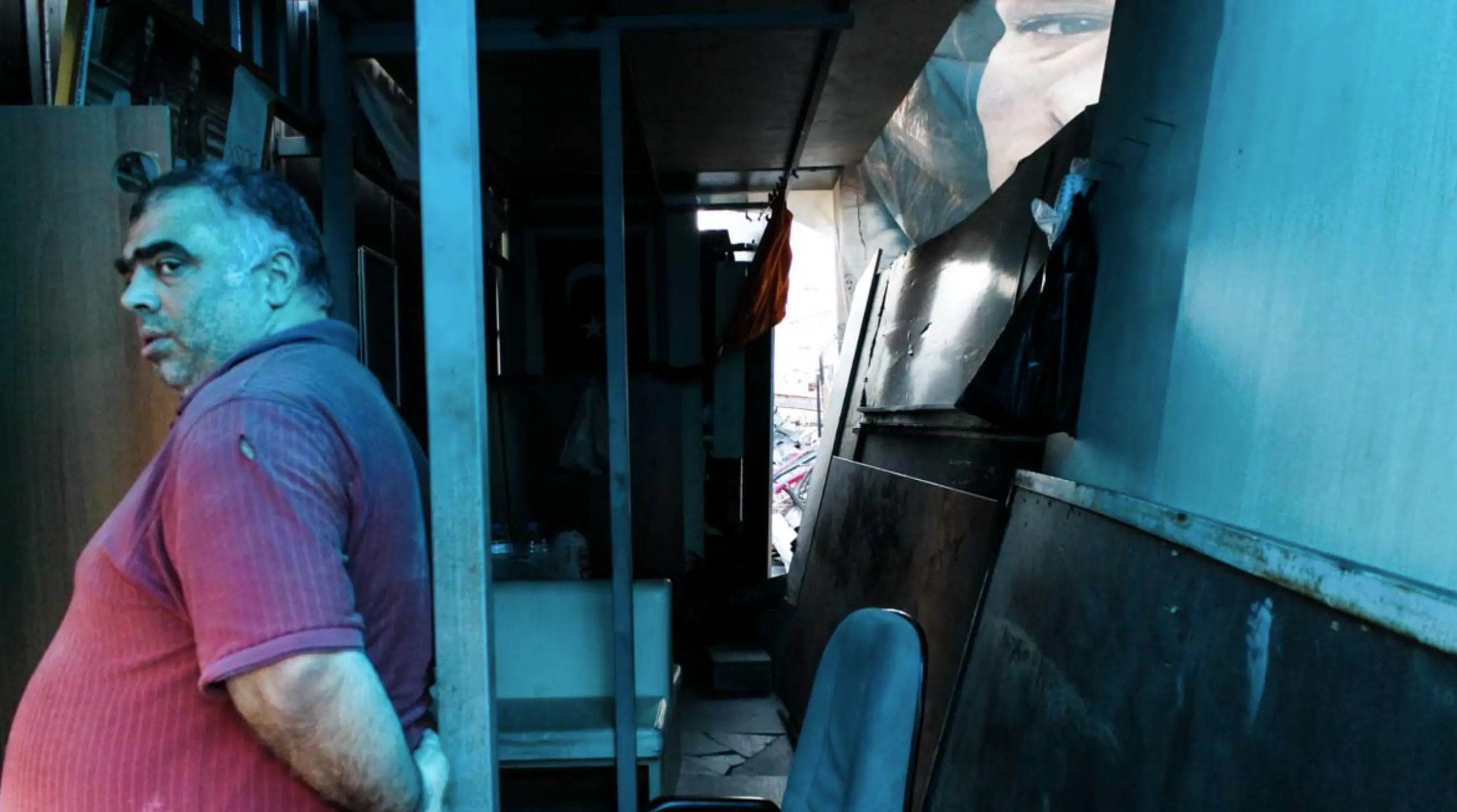
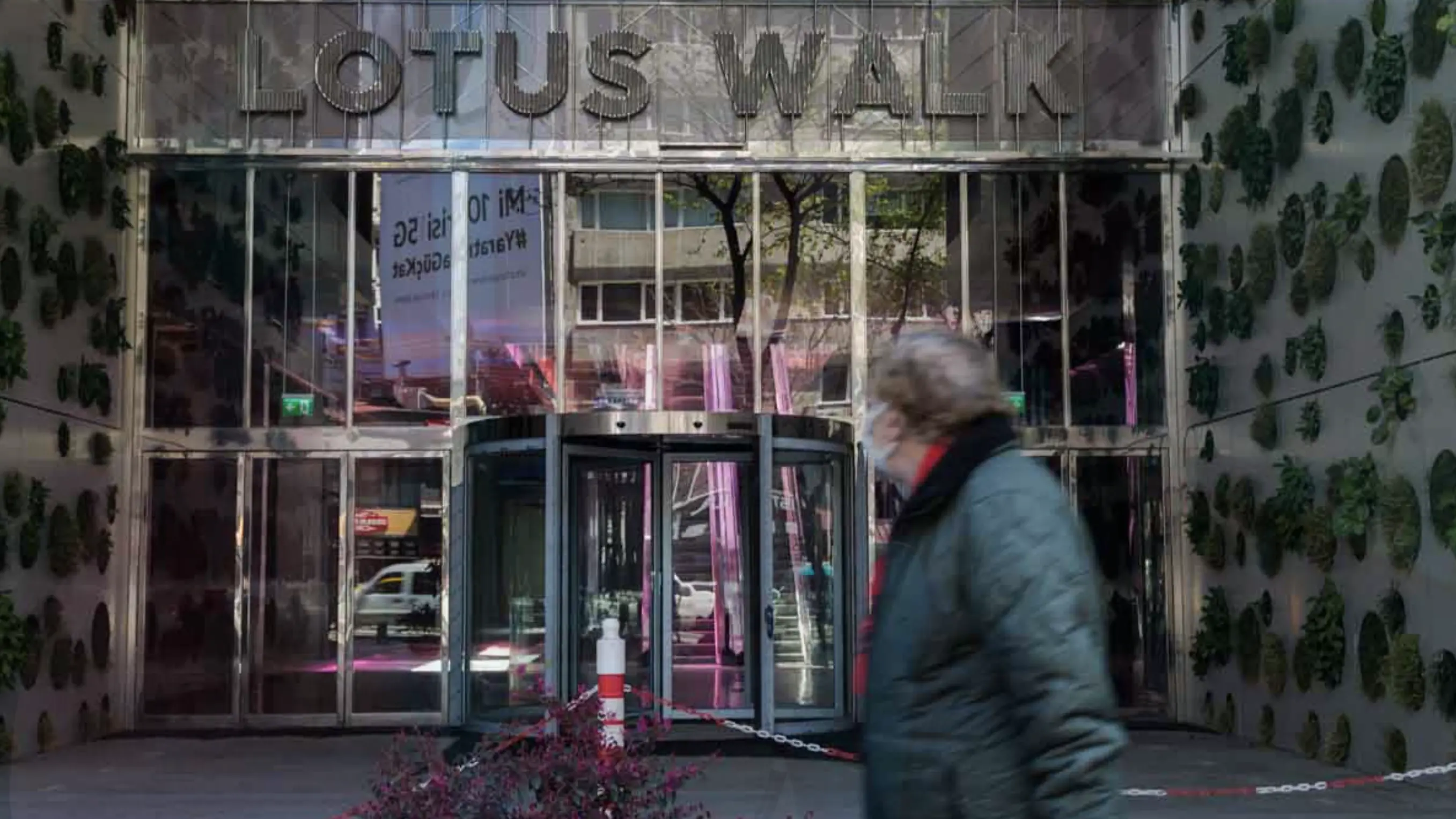
The glass building of Lotus Nisantasi, a checkerboard of residential, retail and office spaces, was just one step in remaking the neighborhood. In 2010, Uzunoglu also signed for half of a plot that cornered the next metro stop. It had been used as the expansive backyard of an Armenian Gregorian orphanage, then as an open-air market, and was one of the rare properties whose seizure had been preemptively stopped in court. It opened its doors in 2014 as a 34-story Marriott Hotel and office plaza.
Miran Pirgic Gultekin, who sells Armenian books a few streets back, only learned about the two projects through rumors. He said that the boards have always been busier with negotiating their status than with checking in with their congregations. “People have no idea of what’s going on,” he said.
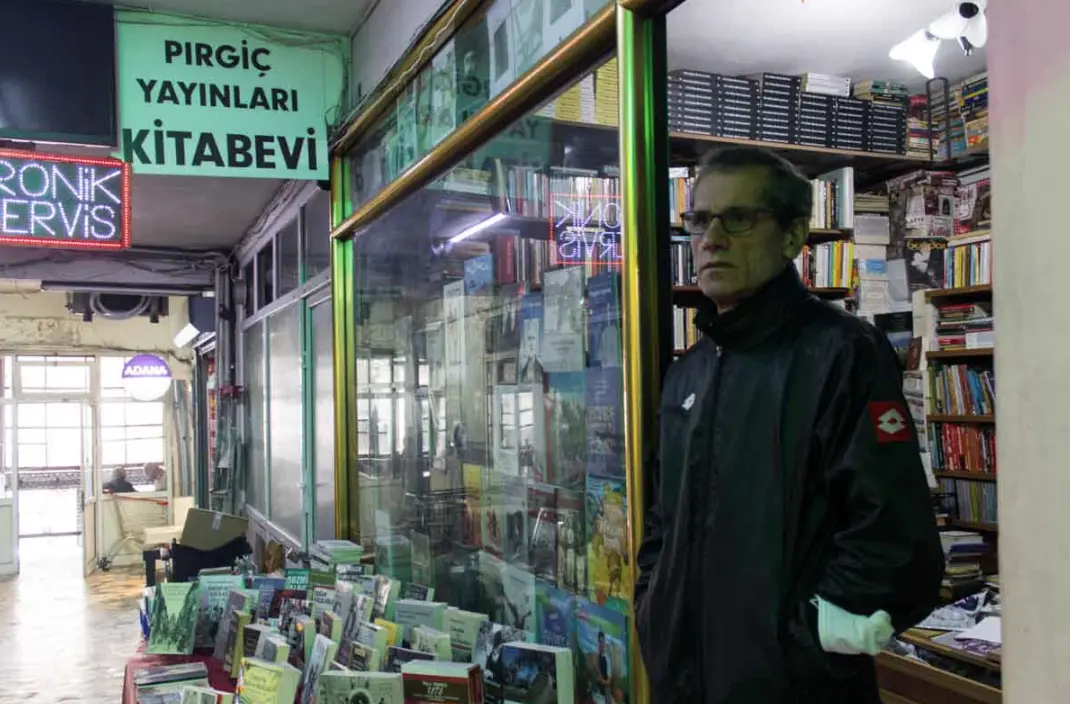
Follow the property
The story of how non-Muslim foundations lost their land is also the story of how Turkey crafted the right to own property. For more than five centuries, all Ottoman lands were deemed to belong to the sultan, with some more private or more inalienable than others. Ottoman law, which was Islamic, did not recognize non-Muslim foundations as landowners and had them name a person instead, often the patriarch or the Virgin Mary. Little protected their ownership but custom, but that was enough.
The trouble came when the state outlined property rights in thicker strokes. Reformers from the late Ottoman era and lawyers from the early Turkish Republic would rewrite private property law to resemble European codes: exclusive, standardized and secular. Non-Muslim foundations were kept separate from Muslim ones and were made to adopt the Anglo-Saxon model of a board of trustees. Few could catch up with the new requirements.
Non-Muslim foundations were only asked to register properties in their name twice: in 1913 and 1936. Both were tough years for them. The first coincided with the violent lead-up to the 1915 Armenian genocide and the second followed the 1923 expulsion of Greeks from Anatolia and the 1934 pogrom against Jews in Thrace. Many were therefore hesitant to log everything they owned. This suspicion would work against their favor: properties that did not fit a constantly revised definition, including being registered in one of the two dates, were up for grabs by the state.
The first challenge against these confiscations to make it to the Supreme Court was by the Balikli Greek Hospital Foundation, the biggest landowner among the foundations. It had lost a property that it had inherited because its founding document, which did not exist, did not say that it could accept donations. In 1974, the same year that Turkey nearly warred with Greece over Cyprus, the court ruled against the board. The 1936 property register, which did not mention donations, would now be used as a founding document. All properties acquired after 1936, then, had to be returned to their owner. (If the owner died and a relative was not found, it would go to the treasury). The decision also officially made foundation affairs a question of national security by calling the Greek foundation “foreign.” Judges later argued that they treated the non-Muslim foundations no worse than the Greek government treated Muslim ones on the other side of the border.
Istanbul had been spared much of the ethnic violence of the twentieth century, but in the decades following the Supreme Court decision, Armenian and Greek foundations lost about half of their communal property in the city. The treasury, the national estate, the municipality and the national foundations directorate either put these lands to public use: a park, a road, a parking lot. [Or] more often, sold them off. Even communal properties that were never confiscated were not left alone; the foundations directorate had to approve the board’s every move and even blocked them from making the smallest repairs.
Resisting in court
The work of locating and reclaiming seized properties became a specialized business as early as the nineties. Lawyers visited non-Muslim foundation boards to help them demand buildings they often didn’t know they owned with methods they didn’t know existed.
“We thought it was a scam,” said Erol Kalk, who was on the board of an Armenian church foundation when it was approached in 1997. The right to reclaim property was not yet law, but it could be pled case by case. After “researching their seriousness,” the board tried its luck. Kalk, a dentist, volunteered on the board and, like his peers, had no idea what commission to negotiate. But as more boards had their try, they exchanged tips, and as more lawyers made offers, they gained practice.
Until then, foundations had only sued for compensation, and the sums they won (if they won) were set well below the current market value. Some boards preferred to avoid the courtroom and instead met directly with officials in Ankara. This strategy could be cheaper and more efficient, but only if the political timing was right.
It was only in the early 2000s, when Turkey was negotiating to join the European Union, that three foundations — the Buyukada Greek orphanage, the Fener Greek Boy’s High School and the Surp Pirgic Hospital Foundation — appealed their cases to the European Court of Human Rights. The 2008 law passed after the court pressured Turkey to compensate the foundations in full and return one of the properties.
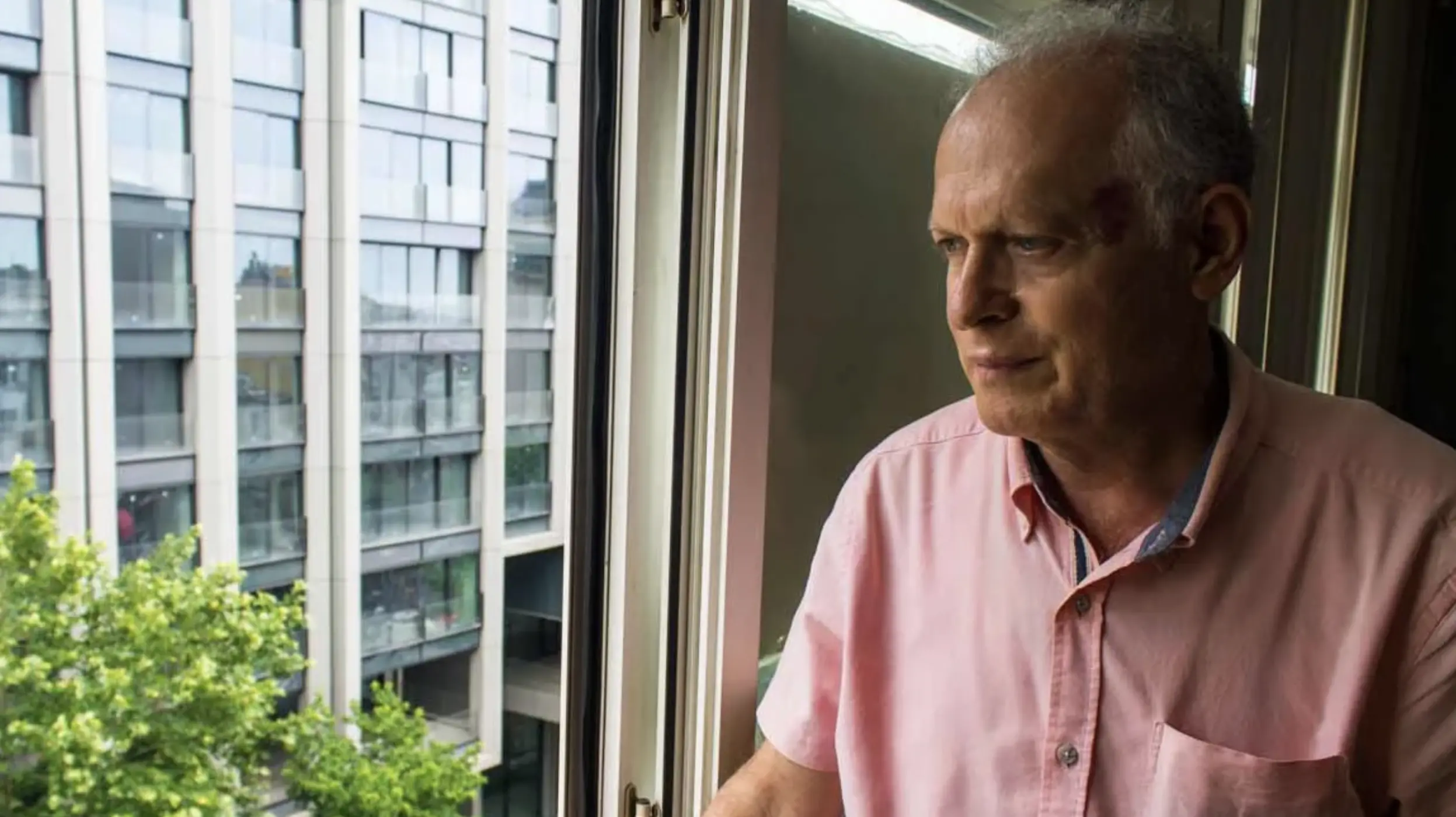
Besides opening a path for more returns, the law also let non-Muslim foundations help each other out. The Balikli foundation gave legal aid to smaller foundations that could not afford a lawyer. The Armenian patriarchate and the Surp Pirgic Hospital Foundation separately pooled together lawyers, engineers and architects to help other foundations, but most boards shied away from using their services.
“Foundations used to be more protective: they had an accumulation, not a market, mindset,” said Foti Benlisoy, a writer and lawyer who has translated documents for many of these cases. He is among a new breed of specialist who has learned the ins and outs of foundation property return, including retired bureaucrats who photocopy land registry maps and amateur historians who look up and visit inheritors. Much of their work goes into convincing more hesitant boards that they will gain more than they will lose. Now, said Benlisoy, they too think according to market logic. “Corporate bodies behave just like real people.”
Still, the way the process goes, foundations without the contacts or the means to put together a strong file stand a slim chance of winning their case. To get the title deed of its property, a board must keep century-old records, collect other obscure ones and prove that landmarks on the new map match old ones. They must also work fast, since the deadline the law gave was tight. While an experienced foundation like the Balikli Greek Hospital Foundation has won back dozens of properties, others are still embroiled in court.
Third stop
The first seminary of the Bulgarian Orthodox Church was built in 1895 where the city met the forest. In 1921 the plot burned, in 1938 it was confiscated and in 1960 it was converted into a vocational high school, teaching students to make cars. Today, it is waiting to become the ground floor for four multipurpose towers; meanwhile, its sinkhole is a stop for migrating birds.
“The job isn’t so easy,” said Hristo Kapano, who serves on the foundation board that recuperated the land. Few Orthodox Bulgarians are left in Istanbul; many of those who lead community affairs are cousins. Even though the contractor they signed with promised a smooth road, none could predict what would happen. “In Turkey, you have to go through this and that body — it’s taken a long time.”
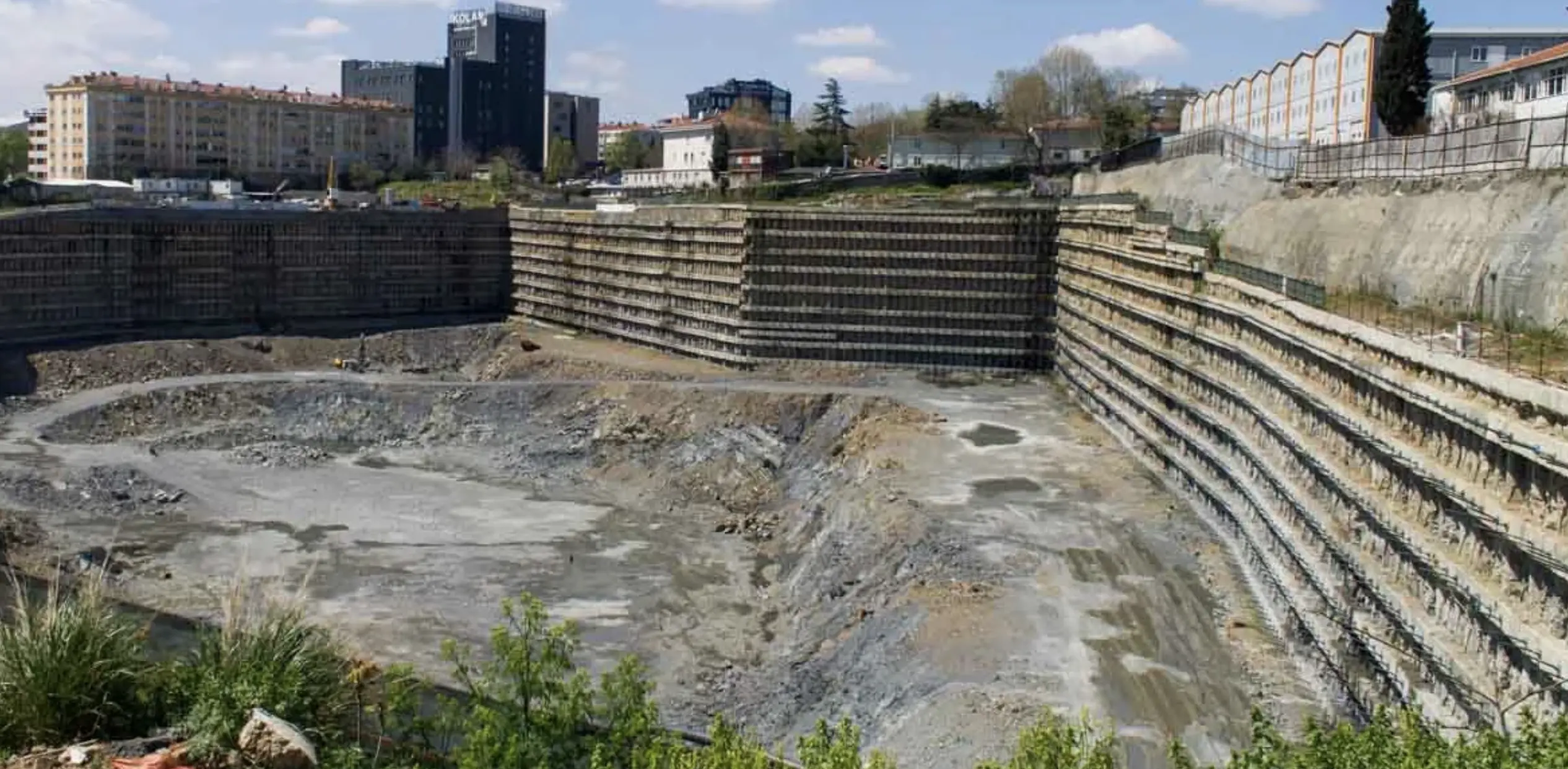
By the time the foundation got its title deed in 2012 and presented its zoning plan, which was rejected twice, Turkey was entering its next market cycle. The law to return properties coincided with a construction craze; now, the lira is tumbling and so is financing. It is not even yet clear what one of the four towers will hold.
Even projects that are completed are in limbo. Lotus Nisantasi was meant to open last year, but the pandemic got in the way, and it is still scrambling to fill spots. Uzunoglu recently decided to sell the Marriott Hotel, which struggles to attract clients. The orphanage foundation had pledged to use its extra profits to cover Armenian school tuition; nothing has come of it.
The Laterna Cafe is also now an idle plot, not quite yet the back garden of the Akka Lush Hotel. The Greek foundation has redeveloped five other properties, but the money that it collects from its 650 leases only covers a third of the hospital’s expenses. “You don’t know what’s going to happen years from now,” said Skarlotos. “You win some, you lose some.”
These projects are not the only ones in the city to be trapped by financial deadlock. But here, something else is at stake.
“I am against the principle of thinking of it only as an income issue,” said Laki Vingas, who helped negotiate the 2011 law as the representative of all non-Muslim foundations. He now runs an association that helps Greek foundations and tries to involve youth to prepare them for when their time comes.
To him, erecting a building in Istanbul is a way to become visible, to dialogue with the city. Board members may now be few to manage such a large physical footprint, but they should not be intimidated by their past, he said. “If we want a future, we need to raise our voice and demand a place in daily life.”
What that place will look like, and who it will belong to, are questions that are still up in the air.
Download the full database, which contains more detailed information, and learn more about the data collection methodology here.









